Subscribe to the Newsletter
If you are interested in understanding how Traditional Chinese Medicine can improve your life sign up to my newsletter for the latest updates.

Key Learning Points
Your skin is where you touch the world. It’s both your protection and the way you present yourself. Harm it? – Weaken it.
When weak, – as in thin, dry, scaly, too oily, acne, etc – you look less good, and your skin’s power to defend you may be lost.
And what you think of as your skin is rather more than you may imagine. Wherever you contact the world is related to your skin.
In Chinese medicine, your Lungs are said to ‘rule’ your skin. Deep inside you, the place where your Lung channel starts is in the region of your stomach, in the upper part of your abdomen. So, in Chinese medical thought, there is a very close relationship between your skin care, your Lungs and your Stomach and digestion.
This page is an introduction to how to keep well and reduce your chances of getting sick. Your immunity is absolutely connected to your skin care. Further down are some ideas for skin care that we think may help most people to develop really good-looking skin, AND to increase their immunity to disease.
Probably you won’t much like them! But that doesn’t mean they’re wrong. And you may be able to use some of them.

As everyone knows, the world gives birth to you, nourishes and protects you – but it can also be unsafe.
Chinese medicine has spent a huge amount of time, over many thousands of years, thinking about how to get and stay healthy, in a sometimes dangerous world!
Part of skin care, and one big question is, what is the best way to avoid what the Chinese call ‘warm’ diseases’ – ie those that are contagious; everything from measles to TB, including the common cold, corona-virus and Ebola along the way.
Some diseases, if they get inside you, are almost unstoppable, or at least they were in past times – plague, for instance: definitely not one you want if you’re interested in skin care.
For others, modern medicine at its best has superb ways to keep you alive until either your body cures itself or someone works out what to do: SARS and Ebola are examples.
But, basically, when we are talking about what you can do, including for skin care, it comes down to Hygiene.
The problem is that for some – perhaps all – diseases, modern man is under a huge handicap, self-inflicted with the best of intentions.
The ancient Chinese almost certainly didn’t suffer from this handicap. Probably it has only really come about since the second World War.
What is it?
Undoubtedly modern medicine has saved enormous numbers of lives. However, as a result, many of us have become much more susceptible to illness and less able to resist it – see Suppression.
Antibiotics have saved countless lives, but they are really a form of pesticide, that kills everything in its path down your gut. Unfortunately, your gut is where much of your immune force resides. Our immune systems are weakened by 60 years of antibiotics, with the extra problem of de-natured foods which we take because they are easy and quick.

Nowadays we realize the skin care and general health benefits of fresh food, salads and so on. Many important vitamins and enzymes that are naturally present in fresh food are destroyed or dissipated by cooking – though lightly cooking food doesn’t destroy or dissipate them all.
The Chinese medical advice for health, including skin care, was always to eat cooked food. The main reason was that your Stomach uses Yang energy to digest food. When ill, your resources are low, so to avoid over-straining your Stomach, the advice is to take food both cooked and still hot.
Of course, they had lots more to say about food than just to eat it cooked and hot! – see Nutrition.
We now realise there may have been another reason. Cooking food destroys bugs that make us ill.
For example, modern chickens, especially if reared in broiler factories, may host huge numbers of dangerous bacteria. Farm animals given antibiotics to keep them clear of expensive diseases, may host superbugs against which many of us have few defences.
So, going back to the Chinese advice, when there is potential disease around, before eating carefully wash your hands, then:
Discard paper tissues once used, and wash your hands afterwards.
One further piece of advice. Important! Indeed, this is vital if you are concerned for your skin care.
If you suspect you may be in contact with people with colds or ‘flu, stop eating anything containing sugar, or anything containing foods that quickly turn into sugar in your digestion. That includes
In fact, you’d be healthier if you didn’t eat these things all the time. In the form we take it, sugar is really a concentrated food, almost a medicine. Until a few hundred years ago, most countries had only rare experience of sugar – just honey, occasionally, and beet.
Foods chewed well gradually turn to sugars during the digestive process but this is a slower and safer way. It does less damage to your immune system and your skin care.
If you eat a lot of food containing sugar or foods that easily turn into sugar, you will gradually notice skin changes such as
Thoroughly wash your hands with soap and water before:
For example, someone with ‘flu sneezes into their hands. Then they use a handrail in the bus. Five minutes later you hold that handrail. Two minutes later you unwrap a sandwich and put it in your mouth, then scratch your eye. Either spreads the virus to you! Some bugs survive for hours away from their host.
Unless you work where you know that some bacteria may kill you, don’t wash with anti-bacterial soap or detergent! And don’t use them on everyday surfaces at home: ordinary soap and hot water is fine.
Of course, before using a bar of soap, rinse it under running water to clear any bugs on its surface. After using it, rinse with clean water and let it dry. If it remains wet before the next person uses it, germs may multiply on it.
Don’t leave your cleaning cloth in water overnight because bacteria thrive better in a damp place. They start dying when it is dry, more so if exposed to direct sunlight containing ultraviolet rays.
But you already know this, because damp cloths go mouldy. Dry ones don’t.
And what about the surface of your own skin? Does Chinese medicine have much to offer here for immunity and skin care?
Well … let us say that personal hygiene isn’t the first thing you read about when studying the classics.
So consider the following, which probably falls within the spirit of Chinese medicine, if not the ‘law’.

The (British) Sunday Times in its News Review, 1st June 2014, described David Whitlock as a ‘donnish, Einstein-haired chemical engineer’, who hasn’t showered (or presumably bathed either) for 12 years. And he doesn’t smell.
Why? How?
Apparently he sprays himself daily with a solution containing ammonia-oxidising bacteria, that live normally in the soil, in lakes and the sea. To keep ‘clean’ he gives his skin an occasional wipe with a sponge to remove any grime.
You may know of research that shows that children brought up close to the soil (eg on farms or in gardens), or who had pets (ones with hair) as children, tend to be less allergic than children brought up in super-clean homes and without pets.
It seems that exposure to dirt bestows immunity to many allergies. Too much ‘cleanliness’ leads not just to allergies but to auto-immune diseases.
The Sunday Times article quotes Swedish research on children with eczema. The percentage with it brought up in cities was 12%, compared to 7.6% amongst children on farms. Apparently, the incidence of eczema among Amish children is 1%. (Probably they eat a very healthy diet, too.)

David Whitlock deduced that animals that perspire, such as horses, but don’t smell of sweat, must have bacteria on their skins that remove the odour of ammonia. Hence ‘ammonia-oxidizing bacteria’.
He reasoned that animals, being brought up in relatively ‘unclean’ conditions, would be in regular contact with these bacteria.
So he gathered soil samples from various places on an organic farm. Being a chemist he knew how to get rid of harmful bacteria such as tetanus, and produced the spray he has now developed.
But before he did that, he checked the level of ammonia-oxidising bacteria on his own skin. And found NONE! Why? Because his skin care regimen involved washing with soap and detergent often twice daily – which kills any ammonia-oxidising bacteria. Even when he stopped such bathing for a while, he still had none.
Hence the spray. A New York Times journalist who visited him said she detected no sign of bad odour or unclean skin.
Indeed, in a pilot study (yes, they’re doing lots of research) people who used the spray for several weeks reported a number of positive results. The NYT journalist, who tried it, said that her skin “became softer and smoother … and my complexion, prone to hormone-related breakouts, was clear”.
Currently, the company making it believes that their spray makes your skin more ‘health resilient’.
This is potentially bad news for the big pharmaceutical companies who make huge profits from skin care. For example:
By the way, if you want to develop your own ammonia-oxidizing bacteria for skin care, don’t bathe in soap or detergent! By all means use cool or warm, but not hot water. However, it may take your body some time naturally to produce the right balance of bacteria to stop you from smelling. That’s why the scientist mentioned above has a company which is producing ammonia-oxidizing bacteria for purchase.
But do use soap on your hands before preparing or eating food and after using the lavatory.
You should also probably avoid bathing in swimming baths containing chlorine or the like, unless you can quickly re-apply ammonia-oxidizing bacteria afterwards.

All this skin care and immunity stuff applies also to your hair.
Indeed, if you have the strength of mind to stop using soap, detergents and conditioners on your hair for long enough, you will find that it becomes naturally lustrous and healthy. And it won’t smell! Of course, rinse it in the shower occasionally to remove dirt, but don’t wash it with soap or detergent. Comb it regularly if you wish.
My belief is that if you do that with your hair for long enough, you’ll develop on your scalp the ammonia-oxidizing bacteria you need.
It might be even that after bathing with soap or detergent on your skin – but not your hair – that after rinsing all the soap/detergent off you could stand under the shower and run clean water on your head downwards over your body, thereby helping to repopulate your skin with good bacteria from your hair. (However, I have no proof of this.)
Want to know the correct way to take a shower? Click here!
Your Skin is your largest organ. It seems that for good skin care, a little dirt may be what it needs! But it’s got to be dirty dirt, ie not too sanitised!
I suspect that, suppose you shave with soap and water, if you otherwise allow natural ammonia-oxidizing bacteria, or the like, to populate your skin, they will fairly quickly re-populate your face.
That may reduce the incidence of a whole range of conditions, and may even, bated breath, increase your resistance to the superbugs that antibiotics now cannot control.
Not a bad result from not washing ‘properly’!
Want to buy these ammonia-oxidizing bacteria in the form of a spray, to apply for your skin care after bathing with soap or detergent? Click here!
Of course, if your skin is rich in ammonia-oxidizing bacteria, it will in due course become rich in many other bacteria. These, assuming you eat a healthy diet, will encourage other bacteria.
It will also encourage some ‘unhealthy’ bacteria, including some now termed superbugs because we have no antibiotics to control them.
I cannot prove the following, but it is my belief that your skin – and your body – will now contain what it needs to resist infection by the superbugs.
It is when you remove all your natural defences, and eat a poor diet, that your body becomes weakened, loses it wei or ‘defensive qi‘ and easily succumbs to passing infections and contagions.
Those superbugs, when in balance with the good bugs on your skin, will almost certainly set up a beneficial environment. I would argue that we may eventually realise that, just as in your gut your need a balance of organisms, skin superbugs may have a place in maintaining health, perhaps by keeping the ‘good’ bugs in check!
So real skin care allows your skin to grow its own healthy population.
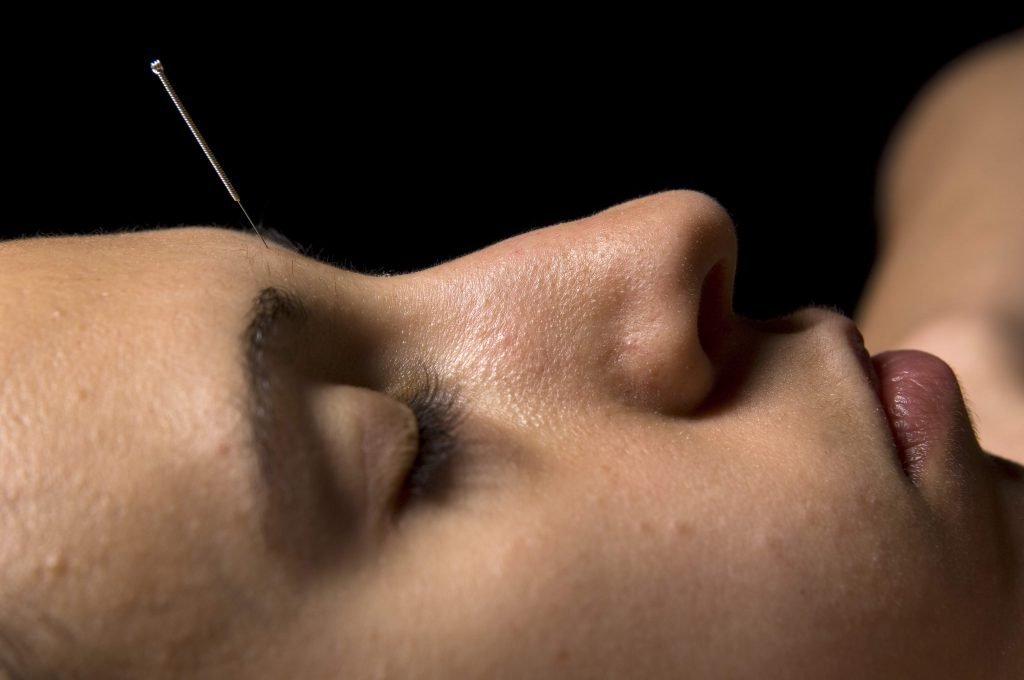

Stay in Touch!
No spam, only notifications about new articles and updates.

Book a Video consultation if you want to know more about your symptoms
The corollary of this is that, when treating patients with acupuncture, acupuncturists should be more concerned about potential infection through acupuncture points in clean patients than in naturally dirty patients – ie those who have encouraged the growth of ammonia-oxidizing bacteria!
And with the latter (‘dirty’ patients), the above information about ammonia-oxidizing bacteria would seem to suggest that no alcoholic swabs should be used to clean the skin before treatment. (Of course, it should be cleared of obvious mud!)
(Having written this, I do, however, as required by the British Acupuncture Council of which I am a member, follow their recommendations for acupuncture treatment.
I merely observe that acupuncture has been used for 3000+ years, generally very safely when done by professional acupuncturists. Only in the last 15 years or so have the required standards of acupuncture hygiene climbed precipitously following recommendations from professors and researchers in skin health who may well view this page with horror.)
Tattooists… please! Observe whether there is any difference in the incidence of local skin infections after tattooing as between people who don’t wash regularly but have health skins, and those who do.
If the former have healthy skin, other things being equal one would expect those with frequently cleaned skin (soap and detergent) to experience more problems.
Warm, damp places where people congregate encourage bacteria and viruses to survive longer:
Hospitals, in particular, at least in the UK, over-heat their wards. The Nursing Times reported that because of thin walls, poor ventilation, windows that can’t be opened, and poor controls, temperatures in over 90% UK hospital wards exceeded 26C. Consequently, bugs proliferate, potentially making hospitals dangerous places for patients. (Nursing Times vol 28, no 46, 2014.)
A hospital I visited in rural China in 1982 had concrete floors and no heating in the wards whatsoever. Consequently
Schools have lots of young, warm, moist and sugar-guzzling bodies. Bugs LOVE moist sugary places! For bugs, this is heaven.

What about your Home? Many diseases spread because of poor ventilation. If your home is
That means you only need one person to introduce the bug, which might arrive in any number of ways, see above, and your home itself becomes the source of your problems.
That’s not to encourage you to rush about with antibacterial soap, but to open the windows, wear a few more clothes to keep warm if it’s cold, go out more to exercise yourself and your lungs and basically, well, toughen up a bit!
There is much more good advice if you click here.
Yes, really important for good skin care, is sleep.
To be healthy and awake you must get enough sleep.
Read more about this balancing act under Yin and Yang.
For more on sleep, see below:
Insomnia comes in many forms. Click the links to find out more:

If there were only one thing in relation to skin care that you should consider it is how prolonged stress affects how you look, your skin care and immunity.
I’ve written a whole book on this, but click here first.
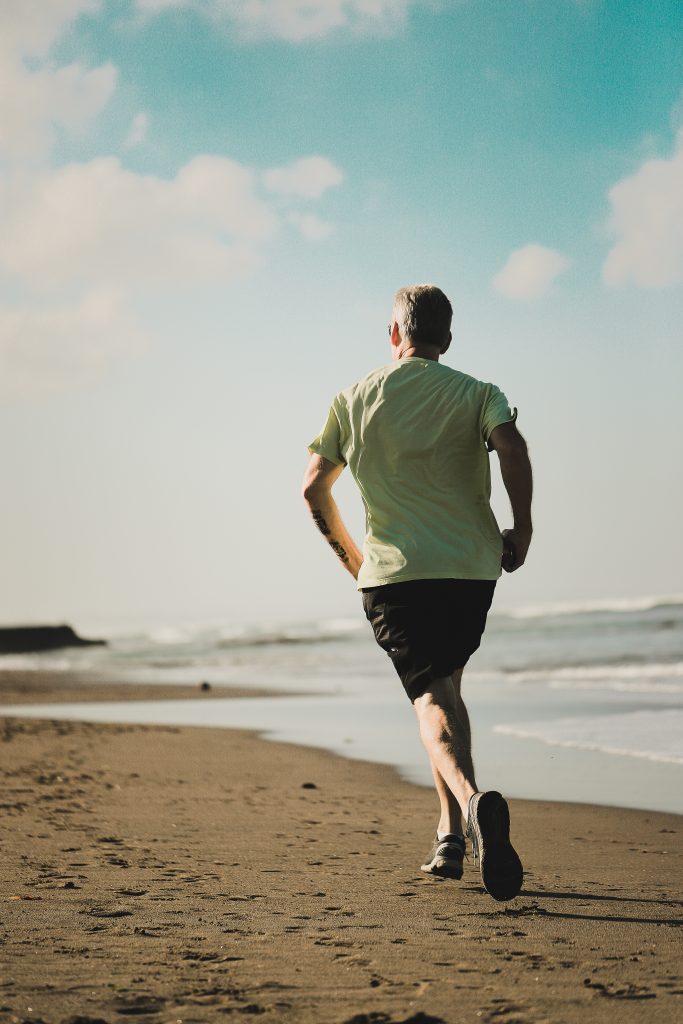
To keep your body and skin cared for, you must exercise. Exercise moves your Qi and Blood, helping you generate and balance yin and yang.
The kind of exercise you take can also be important. Exercises emphasize different acupuncture channels and elements.
For example:
Ideally, if you have a problem centered in a particular Phase or Element, you should benefit from exercise and activities that benefit the following element in the 5 Element or 5 Phase diagram.
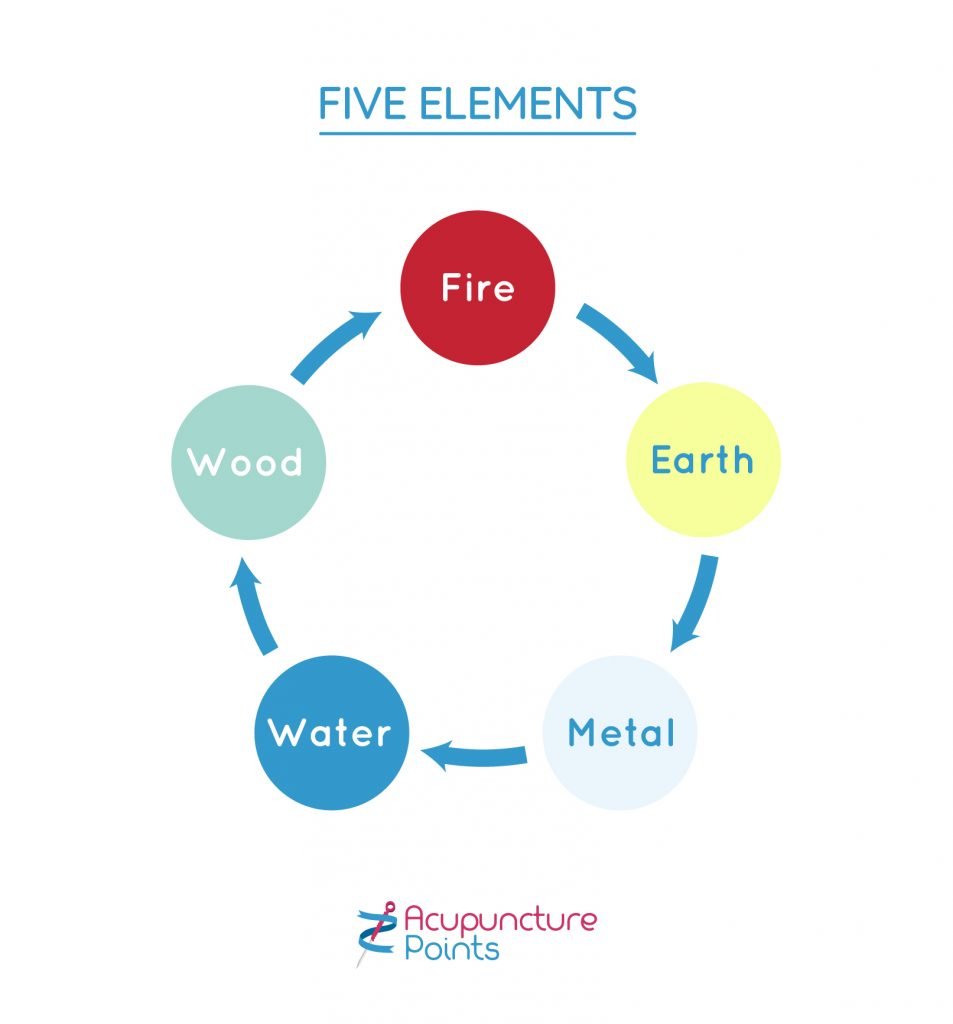
(Five Element acupuncture is a particular kind of treatment with a pedigree almost as long as that of yin and yang and Chinese medicine’s theory.)
So if you are prone to Wood type stagnation, Fire Element activities might suit you best. In other words, if you are a combative Wood person, tennis might suit you in many ways, but actually you might find team sports better for your personality, health and skin care.
People who have regular treatment from acupuncturists trained in traditional Chinese medicine find they feel healthy in many ways. (For examples of what people say, click here.)
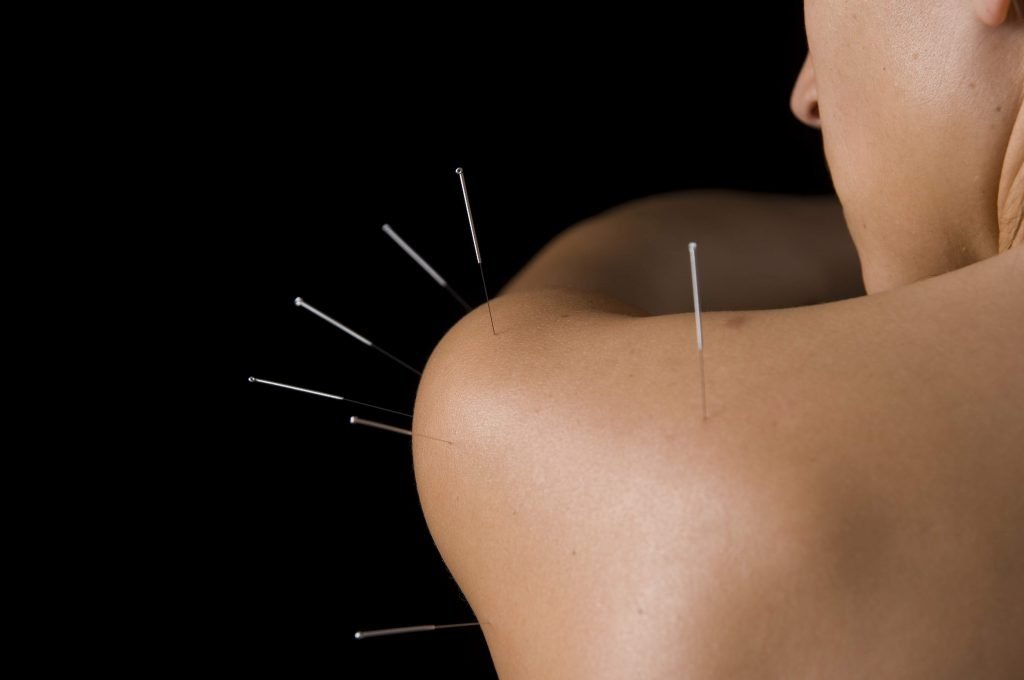
Not least is how they feel and look. When you are healthy, you naturally develop better ways to keep fit, because your body makes you want to.
That includes exercise, posture, diet and of course, skin care. Putting all this together will improve your immunity to disease.
If you are interested in the beauty care skin health angle, click on our page about that.

This Introductory Chinese medicine course introduces you to the amazing thinking behind this ancient medicine, now increasingly in demand.

The Scottish College for Chinese medicine provides introductory courses for all, explaining Chinese medicine and its cultural background.
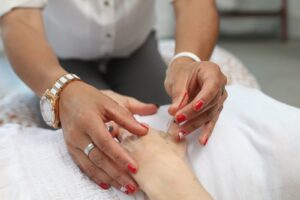
Master Tung’s acupuncture is a hidden treasure, lost to China but recovered in Taiwan from where it spread round the world.
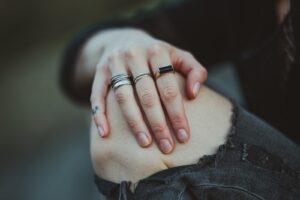
Knee pain has five main causes. It’s certainly worth trying acupuncture before you resort to surgery!
Subscribe to the Newsletter
If you are interested in understanding how Traditional Chinese Medicine can improve your life sign up to my newsletter for the latest updates.
Subscribe to the Newsletter
If you are interested in understanding how Traditional Chinese Medicine can improve your life sign up to my newsletter for the latest updates.